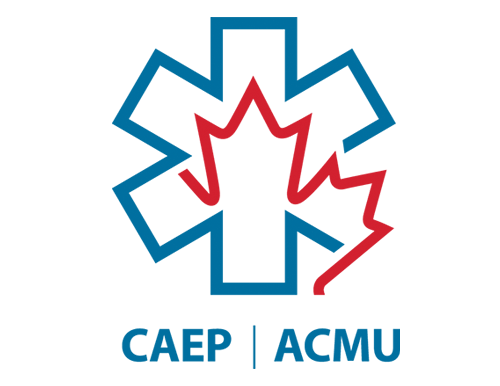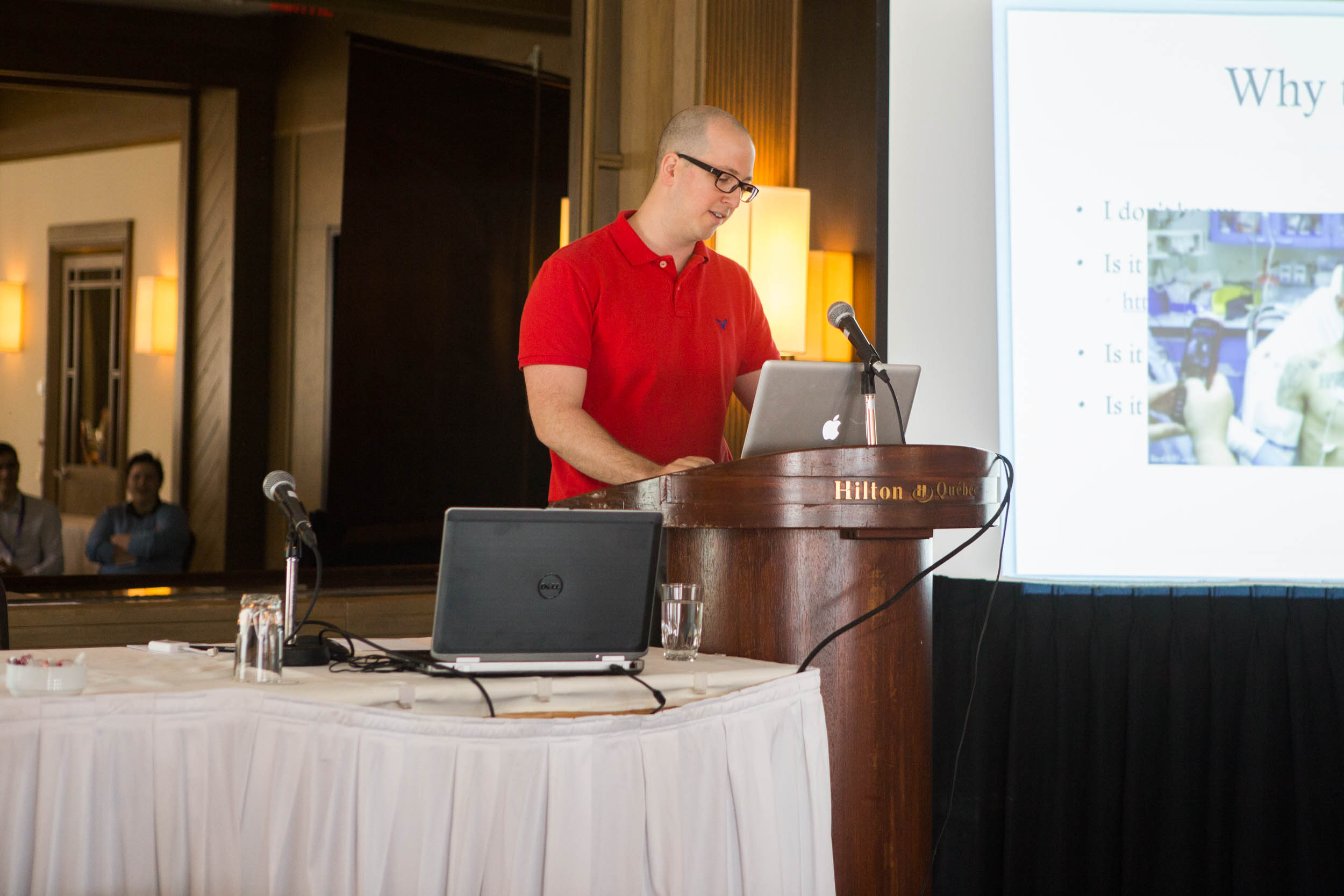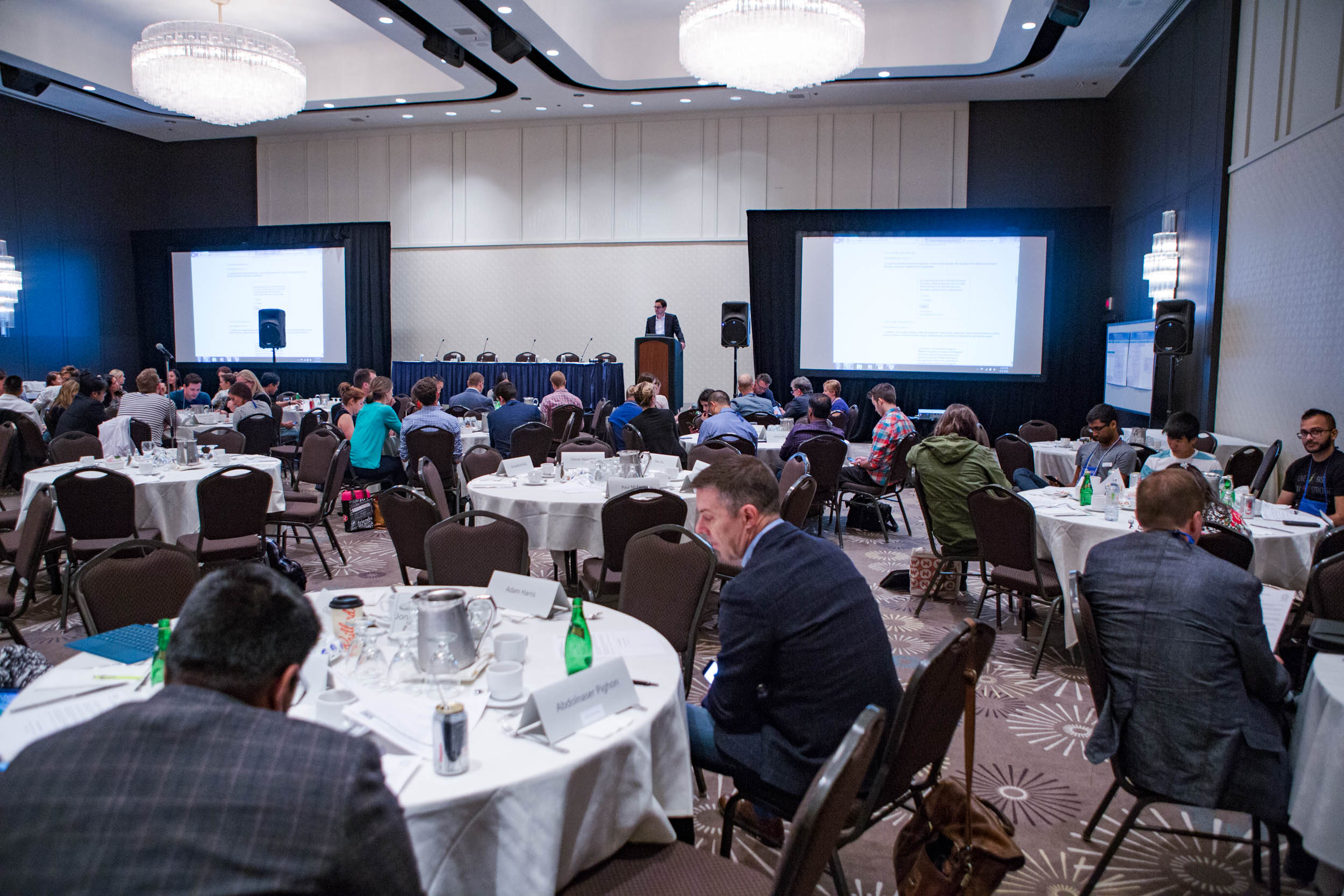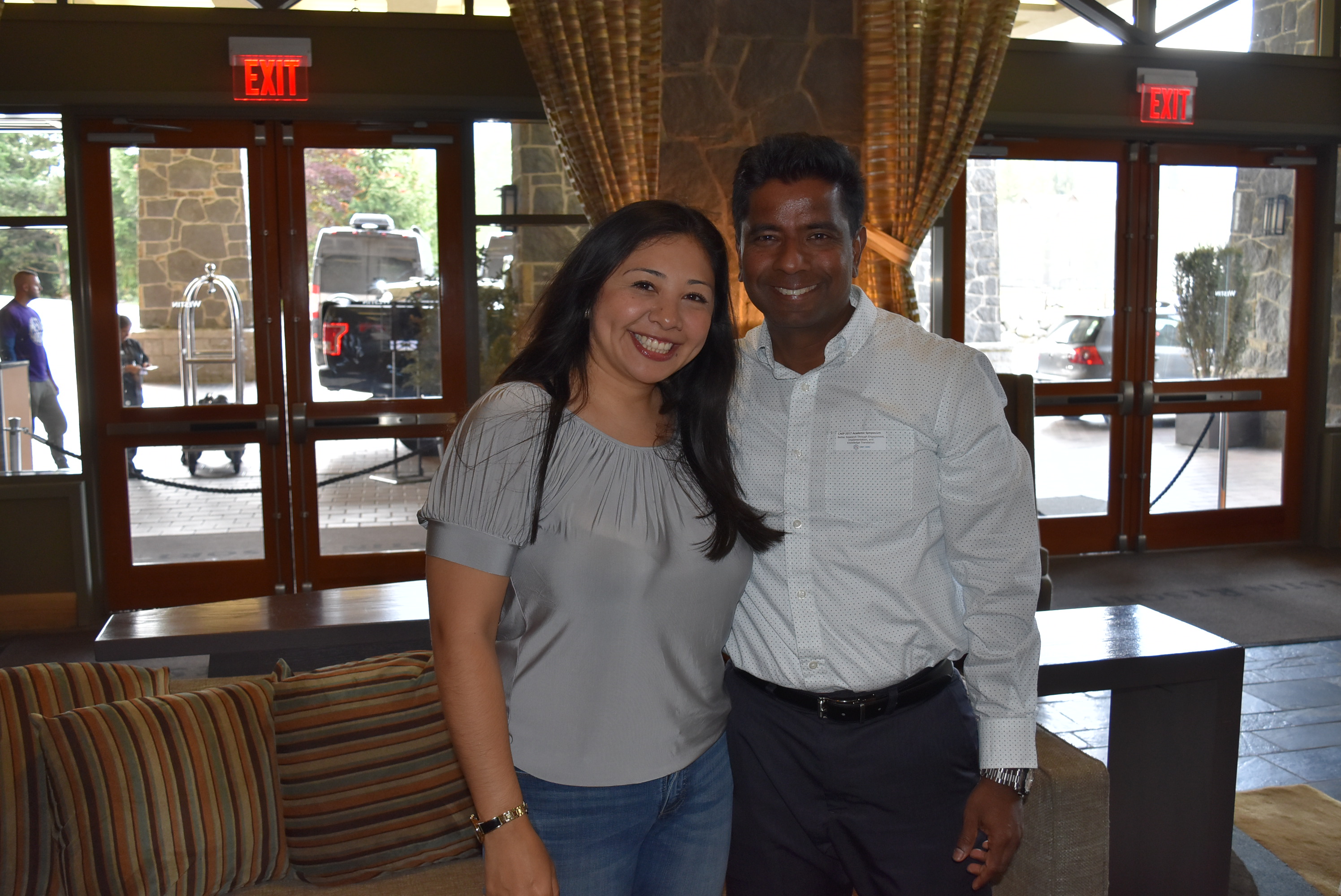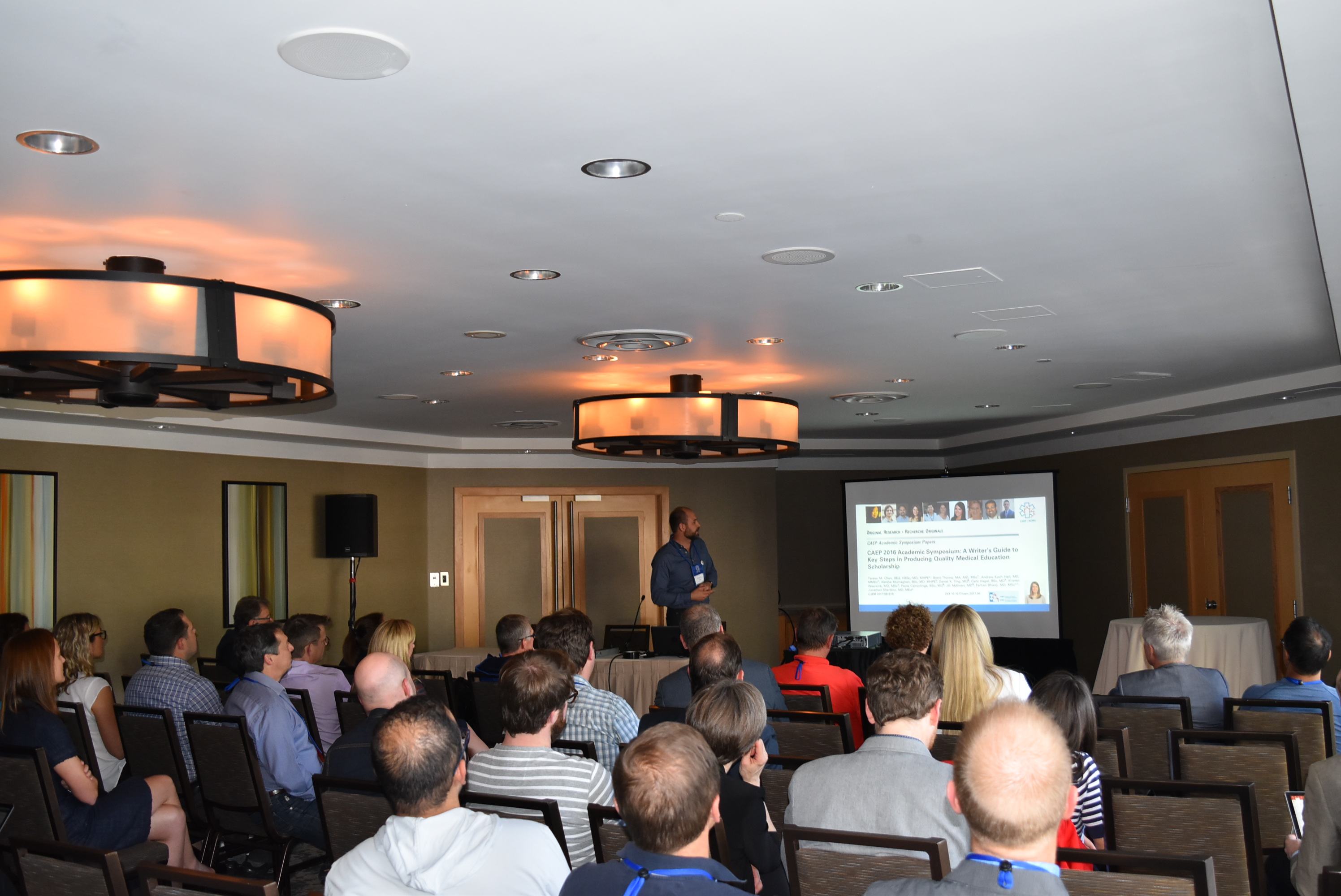Academic Symposium 2016: Emergency Physician Educators & Scholars…the Path to Success!
Saturday, June 4, 2016 at CAEP 2016 in Québec City
The vision of the Academic Section is to promote high-quality emergency patient care by conducting world-leading education and research in emergency medicine. Through its three working groups focused on leadership/administration, education, and research, the Academic Section delivers the annual Academic Symposium.
How do I prepare for a CAREER in medical education?
Panel Lead: Rob Woods
Panelists: Farhan Bhanji, Sandy Dong, Simon Field, Chris Hicks, Rose Mengual, Sheila Smith, Stella Yiu
Draft Recommendations
1. It is recommended that all Clinician Educators in Emergency Medicine be competent in the following domains: Leadership, Communication, Assessment and Curriculum Development.
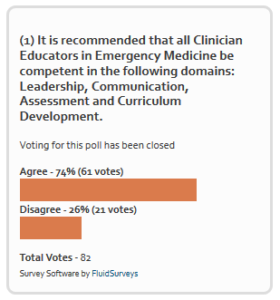
2. Advanced training in medical education is recommended for those pursuing an Emergency Medicine Clinician Educator role. Advanced training CAN be in the form of a Masters Degree, but focussed training on specific skills is also an option.
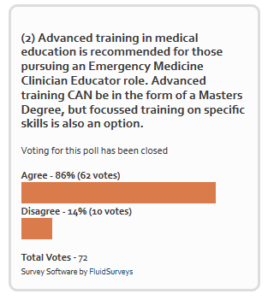
3. In planning the area of advanced training for a future clinician educator role, the skills of the existing local Clinician Educators should be considered and complemented.
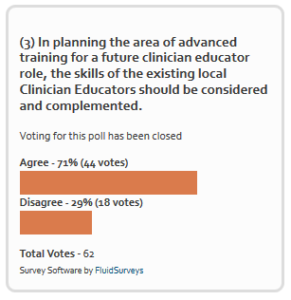
4. Academic and Hospital Emergency Medicine Department Heads should support their future clinician educators to pursue advanced training in Medical Education through preferential work scheduling or protected time, and financial support.
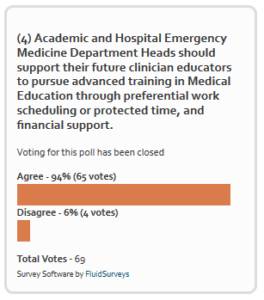
5. Academic and Hospital Emergency Medicine Department Heads should advocate for promotion processes that are in-line with the career path for Clinician Educators, which may be different than traditional research-focussed promotion criteria.
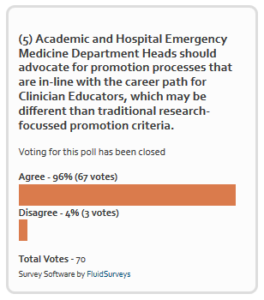
6. The CAEP Academic Section should support the mentorship of future Clinician Educators on a national scale.
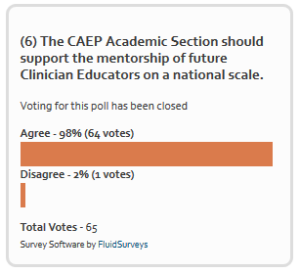
How do I PUBLISH in the field of medical education?
Panel Lead: Teresa Chan
Panelists: Andrew Hall, Aleisha Murnaghan, Brent Thoma, Daniel Ting, Carly Hagel, Kirsten Weersink, Jill McEwen, Ryan Brydges, Farhan Bhanji, Jonathan Sherbino
How do I have IMPACT in the field of medical education?
Panel Lead: Jason Frank
Panelists: Glen Bandiera, Warren Cheung, Connie LeBlanc, Robert Primavesi, Jonathan Sherbino, Rob Woods
|
Theme
|
Subtheme
|
-
There are two major career arcs for highly impactful educators.
|
|
-
Enablers of High Impact
|
-
Preparation
-
Identifying mentors and role models
-
Saying yes at key opportunities and capitalizing on them
-
Taking on increasing roles
-
Gaining credentials in medical education
-
Community
-
Establishing a network of expert colleagues and collaborators
-
Working with your community
-
Strategy
-
Focusing on a program of scholarship (traditional or otherwise) that is unique and influential
-
Carving out protected time
-
Resources
-
Accessing resources
-
Accessing institutional support
|
-
Multifaceted Work-Life Integration
|
- A passion: Work is hobby and mission
- Mix of professional work
- Mix of funding
- Entrepreneurial: Working beyond what colleagues do
- Trade-offs
|
-
Motivations
|
-
Internal
-
Joy of endeavor (i.e., pleasure of teaching, research, speaking, influencing, etc)
-
External formal
-
Recognition (i.e., awards, invitations, promotions, etc)
-
External informal
-
Uptake of work (used work for a case, etc)
-
Triggering discussions in the community
|
-
The Many Faces of “Impact” or Success
|
-
Teaching generations of medical education
-
Mentoring other leaders
-
Use of traditional scholarship (e.g., publications, grants, awards)
-
Invitations to speak or consult
-
Uptake of work
-
Stimulating a discussion in a community
-
Changing practice
-
Worldwide network
-
Name associated with field or body of work
|
-
Disruptive Technology
|
-
New tech has greater reach
-
Can bypass traditional structures
-
Perhaps greater influence
-
Sometimes demeaned by traditional structures
|
-
Evolution of Impact
|
-
Shift from scholarly activities to scholarship
-
Greater recognition for education in university
-
New measures of scholarship (e.g., H-index, impact factor, citations)
-
Need new metrics for digital age
-
Need better measures of KT and uptake
|
Draft Impact Recommendations
1. Two career arcs for highly impactful educators.
- To lead innovation/change either because of or in spite of traditional structures high-quality way with dedicated metrics.
2. Enablers of high impact.
- CAEP facilitates matching aspiring educators with senior mentors.
- CAEP advocates for protected time and resources.
- Early career educators should identify their passion, seek a community of practice of like-minded people (both inside and outside our specialty/country) and develop an attitude of resilience to seek out opportunities.
- To immerse yourself in an area of interest and eventually evolve that into a defined academic niche.
3. Multi-faceted work-life
4. Motivations
- External formal: CAEP should facilitate processes and venues that increase external informal recognition to ultimately increase motivations to make an impact on medical education.
5. The Many Faces of “Impact” or Success
6. Disruptive technologies
- To define the impact of educators using disruptive technologies.
- To increase digital literacy.
- To employ and carefully adopt new or appropriate tools to evaluate disruptive technologies as related to education and scholarship.
- Be valued as a potential significant contribution to education scholarship in EM.
- Distributive technologies should be respected and acknowledged for its capacity to reach and influence a wide range of learners, clinicians, and educators. In light of their ability to bypass traditional structures and their potential for greater reach these technologies require critical evaluation.
7. Evolution of impact
